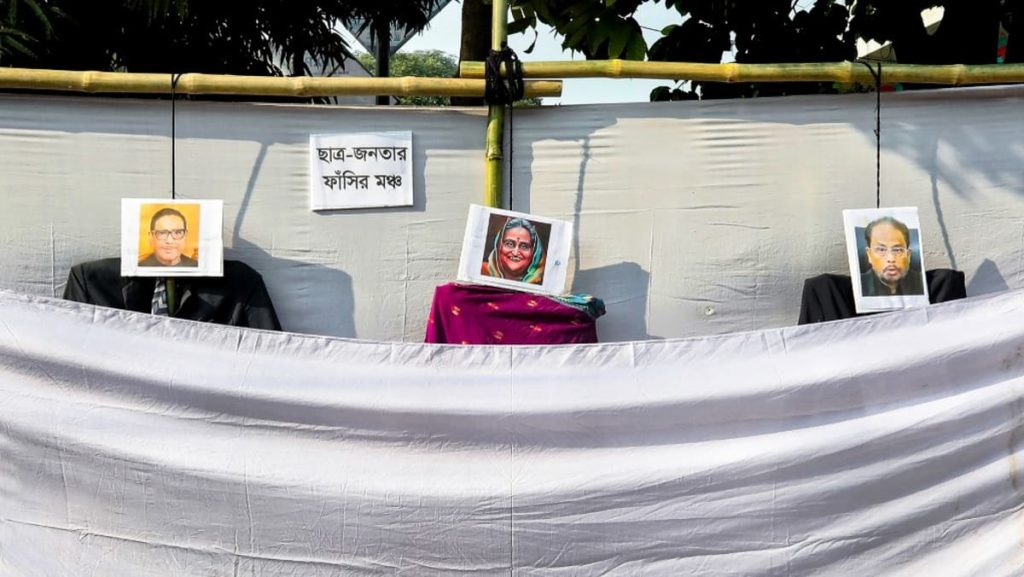The political landscape of Bangladesh has been dramatically reshaped by the fall of former Prime Minister Sheikh Hasina, whose 15-year rule ended abruptly in August amidst a student-led revolution. Her tenure, marked by allegations of widespread human rights abuses, including extrajudicial killings and mass detentions of political opponents, has come under intense scrutiny following her exile to India. Adding to the mounting legal pressure, a Bangladeshi court has issued a second arrest warrant for Hasina, this time for her alleged involvement in the enforced disappearances of over 500 individuals during her time in power. This new warrant comes on the heels of an existing warrant related to crimes against humanity, further complicating her legal standing and raising questions about the future of political stability in Bangladesh.
The second arrest warrant, issued by the domestic International Crimes Tribunal (ICT), specifically targets Hasina’s alleged role in the enforced disappearances that plagued Bangladesh during her rule. Over 500 people were reportedly abducted by security forces, some held in clandestine detention centers for years. The ICT’s action comes as victims, emboldened by Hasina’s ouster, have begun to share their harrowing experiences, providing compelling testimonies of their ordeal under her administration. The warrant also names 11 other individuals, including Hasina’s military advisor, military personnel, and law enforcement officials, highlighting the alleged complicity of various state actors in these disappearances.
The Bangladeshi government has formally requested India to extradite Hasina to face trial, a request that India has so far declined to address. The ICT has affirmed its commitment to expedite the legal proceedings, emphasizing the importance of concluding the trial as quickly as possible while adhering to due process and upholding the rule of law. This commitment to a swift yet fair trial underscores the gravity of the accusations against Hasina and the urgency with which the Bangladeshi government seeks to address the alleged human rights abuses committed during her regime.
The political fallout from Hasina’s ouster has been significant. Dozens of her allies have been detained since the collapse of her government, accused of participating in a brutal police crackdown that resulted in the deaths of over 700 people during the unrest leading to her downfall. This widespread crackdown further underscores the volatile political climate that prevailed during Hasina’s tenure and the deep-seated tensions that ultimately led to her removal from power. The arrests of her associates indicate a concerted effort by the current administration to hold accountable those responsible for the violence and repression that marked the final days of her rule.
The issuance of the second arrest warrant against Sheikh Hasina represents a critical juncture in Bangladesh’s political trajectory. It signifies a concerted effort to address the alleged human rights violations that occurred during her leadership and to hold her accountable for her alleged role in these abuses. The court’s commitment to a swift yet just trial underscores the importance of upholding the rule of law and ensuring accountability for past wrongdoings. The outcome of these legal proceedings will undoubtedly have a profound impact on the future of Bangladesh’s political landscape and its ongoing struggle to reconcile with its troubled past.
The international community will be closely monitoring the developments in this case, particularly India’s response to Bangladesh’s extradition request. The trial of Sheikh Hasina, if it proceeds, will be a significant test of Bangladesh’s judicial system and its commitment to addressing human rights abuses. The testimonies of the victims of enforced disappearances will be crucial in establishing the truth about what happened during this dark period in Bangladesh’s history. The trial will also be an opportunity for Bangladesh to demonstrate its commitment to transitional justice and to build a more democratic and accountable future. The implications of this case extend far beyond Bangladesh’s borders, serving as a reminder of the importance of holding leaders accountable for their actions and upholding human rights principles globally.

